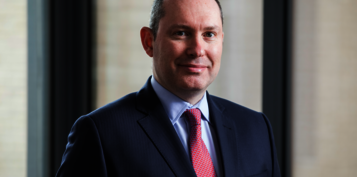“Listen to what your shareholders want”
Investment company chairs discuss changing asset managers.

Eight investment companies changed asset managers in 2020, including Baillie Gifford China Growth Trust, Edinburgh Investment Trust and Temple Bar Investment Trust. Changing the asset manager gives an investment company an opportunity for a new strategy and a fresh start. But what are the key considerations for investment company boards to ensure the best outcome for shareholders?
The Association of Investment Companies (AIC) today held a media webinar with Susan Platts-Martin, Chair of Baillie Gifford China Growth Trust, Glen Suarez, Chair of Edinburgh Investment Trust and Arthur Copple, Chair of Temple Bar Investment Trust, to explore their investment companies’ manager changes.
Annabel Brodie-Smith, Communications Director of the Association of Investment Companies (AIC), said: “Every investment company has an independent board of directors and they are one of investment companies’ most important benefits. Boards offer additional oversight for investors and have a legal responsibility to protect investors’ interests. Importantly, they select the asset manager, monitor performance and can change the manager if performance falls short.
“Investment company boards have been proactive in the challenging conditions of the pandemic. In addition to the eight investment companies which changed their asset manager, last year 32 boards negotiated lower fees for shareholders – around a tenth of the entire investment company universe. Ten companies wound up and returned capital to shareholders and two well-known investment companies merged. These are good examples of boards putting shareholders’ interests first.”
What led to the manager change?
Arthur Copple, Chair of Temple Bar Investment Trust, said: “For a period, performance of the trust had been worrying. Therefore, when Alastair Mundy, the named fund manager, retired the board decided to assess whether the new management arrangements were still in the best interests of shareholders. The first step was to assess whether Temple Bar’s value investing strategy remained the most suitable one for shareholders while simultaneously looking to find out what our shareholders wanted. The board engaged Stanhope, an independent third party, to analyse whether or not value had had its day and if the approach was still suitable for shareholders. Following Stanhope’s independent review and advice, the board decided to stick with the value approach but change the fund manager.”
Susan Platts-Martin, Chair of Baillie Gifford China Growth Trust, said: “Whilst absolute performance was good, performance over one, three and five years had slipped below our benchmark and the share price was persistently below the net asset value. As an actively managed investment vehicle we felt we had to outperform, albeit not necessarily every year, but that if relative performance did not improve within a reasonably short timeframe then action needed to be taken.”
Glen Suarez, Chair of Edinburgh Investment Trust, said: “All boards understand that managers underperform from time to time. The key challenge for a board is to identify what is temporary underperformance, and what is structural underperformance.”
Overcoming the main issues
Glen Suarez, Chair of Edinburgh Investment Trust, said: “When making any decision which will affect shareholders, it is critical for there to be consensus on the board and it is important that you give this time to form. Once there is that consensus, the next step is to get independent advice, which then empowers the board to make the best decisions in the interests of shareholders. When searching for a new manager for Edinburgh Investment Trust, a priority was finding a manager capable of managing a company of this size.”
Susan Platts-Martin, Chair of Baillie Gifford China Growth Trust, said: “Once we had decided on the process, we followed a fairly well trodden path in terms of inviting and reviewing proposals. The main issue was the delay caused by COVID and the eventual realisation we needed to proceed with online meetings and discussions rather than face to face.”
Communicating with shareholders during the change
Glen Suarez, Chair of Edinburgh Investment Trust, said: “Keeping shareholders informed of processes the board go through is critical, as the board’s primary objective is to look after their interests.”
Arthur Copple, Chair of Temple Bar Investment Trust, said: “Communication with shareholders before any announcement is made is very difficult since UK wealth managers are reluctant to be made insiders and communication on sensitive information to shareholders is tough. However, we were able to listen to their views, particularly on style bias. Post the announcement of the management change, the board and managers went to great lengths to speak with all shareholders personally. A virtual roadshow with both me and the managers ensured that shareholders were informed about the investment approach and style of the trust, as well as giving an opportunity for shareholders to question and scrutinise the managers. In order to reach individual investors, we also recorded and hosted a Q&A and videos from the manager and me on our website.”
Susan Platts-Martin, Chair of Baillie Gifford China Growth Trust, said: “We communicated with the assistance of our broker and Baillie Gifford, via calls to larger shareholders and via stock exchange announcements and written circulars sent to registered addresses. Shareholders of course had the chance to vote on the proposals.”
Advantages to shareholders
Susan Platts-Martin, Chair of Baillie Gifford China Growth Trust, said: “The share price has risen almost 40% since Baillie Gifford took over on 16 September to the end of February (and the net asset value 21.3%, compared with the benchmark rise of 9%). The trust has been in demand and has traded at a premium and we have been able to regularly issue more shares to grow the trust.”
Arthur Copple, Chair of Temple Bar Investment Trust, said: “Since RWC assumed management of Temple Bar on 31 October 2020, the NAV performance has been terrific. Share price performance has been even better as the discount has narrowed from 7.8% to around 1%. The board believes that the sustainable value style of the new management team will bring long-term outperformance. Since RWC assumed management, there has been a reinforced commitment to marketing the trust which has contributed to the re-rating.”
Glen Suarez, Chair of Edinburgh Investment Trust, said: “Ultimately, the board’s principal concern has been, and continues to be, the interests of the company’s shareholders. The appointment of Majedie was a critical step in ensuring that the company’s objectives of capital appreciation and dividend growth will be met over the long term. Since the change the performance of the company has been much improved and we have every expectation that will continue.”
Most enjoyable part of chairing an investment company
Arthur Copple, Chair of Temple Bar Investment Trust, said: “As Chair of Temple Bar, I have enjoyed having a diverse and immensely supportive board. At times the management change process was painful and time consuming for the board to say the least, but I am proud of the result and shareholder feedback has been immensely positive. A highlight has been being able to communicate with shareholders and, hopefully, help them achieve their goals.”
Susan Platts-Martin, Chair of Baillie Gifford China Growth Trust, said: “I enjoy being able to set the agenda for board discussions and working collegiately with my fellow board directors to reach decisions for the benefit of our shareholders.”
Glen Suarez, Chair of Edinburgh Investment Trust, said: “Throughout Edinburgh’s manager change process, I have thoroughly enjoyed working with my colleagues to advance the interests of the company and ultimately the interests of our shareholders.”
Advice for other investment companies
Arthur Copple, Chair of Temple Bar Investment Trust, said: “Boards looking to consider a management change should prepare for a long slog. However, at the end, after a thorough process and careful deliberation, they will realise it is worth it for shareholders. Don't necessarily take the easy route. Boards should remember that shareholders are key, and they should always keep good lines of communication with them. Listen to what your shareholders want.”
-ENDS-
Follow us on Twitter @AICPRESS
Notes to editors
- The Association of Investment Companies (AIC) was founded in 1932 to represent the interests of the investment trust industry – the oldest form of collective investment. Today, the AIC represents a broad range of closed-ended investment companies, incorporating investment trusts and other closed-ended investment companies and VCTs. The AIC’s members believe that the industry is best served if it is united and speaks with one voice. The AIC’s mission statement is to help members add value for shareholders over the longer term. The AIC has 361 members and the industry has total assets of approximately £237 billion.
- Disclaimer: The information contained in this press release does not constitute investment advice or personal recommendation and it is not an invitation or inducement to engage in investment activity. You should seek independent financial and, if appropriate, legal advice as to the suitability of any investment decision. Past performance is not a guide to future performance. The value of investment company shares, and the income from them, can fall as well as rise. You may not get back the full amount invested and, in some cases, nothing at all.
- To stop receiving AIC press releases, please contact the communications team.







